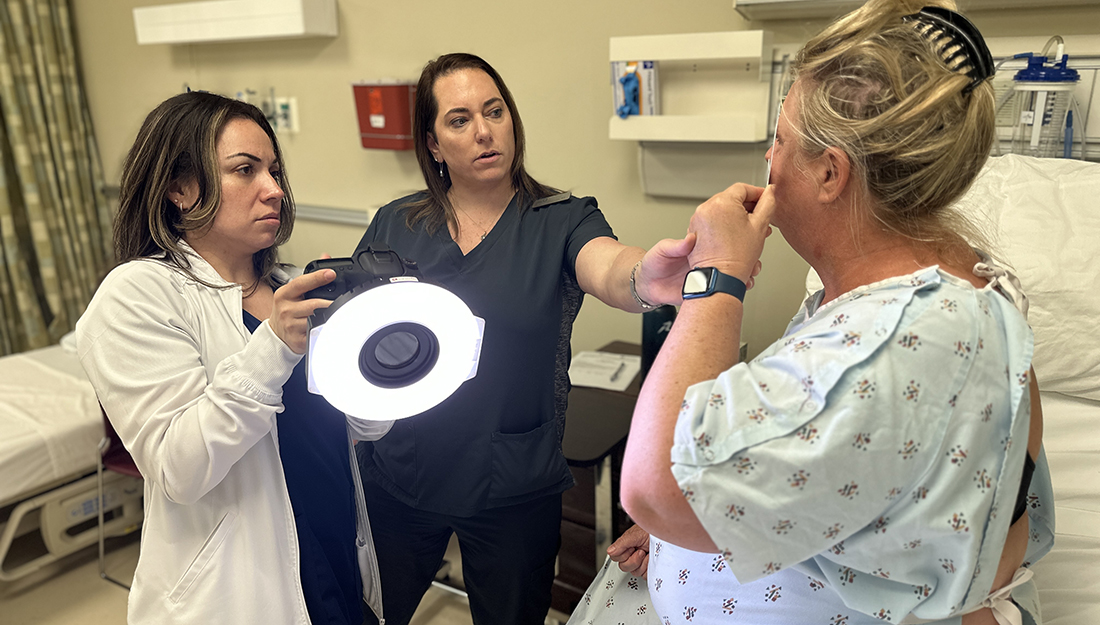- Dominic Hernandez
- Nursing, Show on VR homepage, Trending
Family matters: Common diseases affected by family history
Up-to-date on your family medical tree? If not, you should be

From your grandmother’s pearl necklace to your great-grandfather’s pocket watch, there are countless family heirlooms passed down from generations, but none are as old as your family’s gene pool. Genetics are what give you your father’s chin or your mother’s eyes, but sometimes you pick up some unwanted gifts, such as their blood pressure problems or diabetes.
Health care providers often ask questions about your family history of certain illnesses, and Karen Landry, Ph.D., assistant professor at the Texas A&M Health Science College of Nursing, breaks down why—and which conditions are most likely to be affected by your family’s genes.
Cardiovascular disease, high blood pressure and high cholesterol
According to the Centers for Disease Control and Prevention (CDC), cardiovascular disease is the number one cause of death in the United States. ‘Heart disease’ is a wide umbrella term, with a great variation of the conditions that fit under it, such as heart failure, heart attack, stroke and coronary artery disease.
Because high blood pressure and high cholesterol can lead to these conditions, several risk factors are avoidable by maintaining a healthy lifestyle. While genetics may play a factor with heart disease, it is also likely that people with a family history of heart disease share common environments and other potential factors that increase their risk.
“We don’t always know the extent that family history plays in heart disease,” Landry said. “We try to encourage healthy lifestyles as ways to prevent or minimize the effects of these conditions.”
High blood pressure, or hypertension, is a very common condition, affecting about 80 million Americans. High blood pressure could lead to health problems such as heart disease, congestive heart failure and heart attack or stroke.
There are many other factors that may lead to high blood pressure, such as being overweight, smoking or having diabetes. It is possible to manage your high blood pressure through lifestyle changes such as maintaining a healthy diet, reducing sodium intake, becoming physically active, reducing stress and taking medication.
According to the CDC, 31 percent of adults have high cholesterol. Cholesterol, while not inherently bad, can lead to an increased chance of heart disease if not properly managed.
“Having high cholesterol or blood pressure can lead to future problems,” Landry said. “If your family has a history of these conditions, you’re at greater risk and should work with your health care provider to keep them managed.”
High cholesterol can be managed with healthier eating choices and exercise. A diet with high amounts of trans fat and saturated fat raises your low-density lipoprotein (LDL), or “bad” cholesterol. Eating more monounsaturated fats (including nuts, avocados, olive oil and fish) is important for keeping your cholesterol in check by raising your high-density lipoprotein (HDL), or “good” cholesterol.
Type 2 diabetes
Diabetes, one of the most common diseases in the United States, is commonly linked to family history. Although both type 1 and type 2 diabetes genetics can be passed down, type 2 diabetes has a stronger link to family history.
According to the American Diabetes Association, a child’s risk for getting diabetes is about 50 percent when both parents have type 2 diabetes, but even with this family history, the risk for developing type 2 diabetes can be lowered through a healthy lifestyle.
For those who already have diabetes, keeping your condition under control is extremely important, as you can minimize symptoms and live an ordinary life.
Mental Illness or addiction
According to National Alliance on Mental Illness, approximately 4.2 percent of adults in the United States experience mental illness in a given year that substantially interferes with or limits one or more major life activities.
A family history of mental illnesses or mood disorders, such as depression, bipolar disorder, schizophrenia, Alzheimer’s and dementia, increases the chance of developing the disease. Mental illnesses and mood disorders are common among all groups of people, but typically develop in early adulthood.
Along with genetics, environmental factors—such as stress or life events—can play a significant role on whether someone develops a disorder, or the severity of the illness.
A Texas A&M College of Medicine study examined how alcohol affects neurons in the brain, possibly causing a craving for alcohol. According to the National Council on Alcoholism and Drug Dependence, genetics makes up 50 percent of the risk for alcohol and drug dependence, but, like many people who are genetically dispossessed to a condition, it doesn’t mean that they’ll develop it.
Many outside factors can also lead to addiction, such as societal factors and exposure within the home or community.
Cancer
A few types of cancers—such as breast, ovarian or colon—can have hereditary factors, but only a small proportion are associated with a family history. However, each family is different. For example, very large families may make the numbers seem greater than they are, and families with few women won’t show patterns of ovarian or breast cancer.
If you have one elderly relative with breast or colon cancer, then it is more likely that the cancer is not hereditary. However, a large number of people with the same type or a related type of cancer, especially if they were diagnosed at a young age, may signal a problem. For many people with a family history of these conditions, medical providers may refer you to a specialist.
“Keeping track of family history is very important to getting optimal care from your health care provider,” Landry said. “If you feel like you are at risk for these conditions, talk to your provider and make sure you are keeping up-to-date with your family history.”
Media contact: media@tamu.edu


